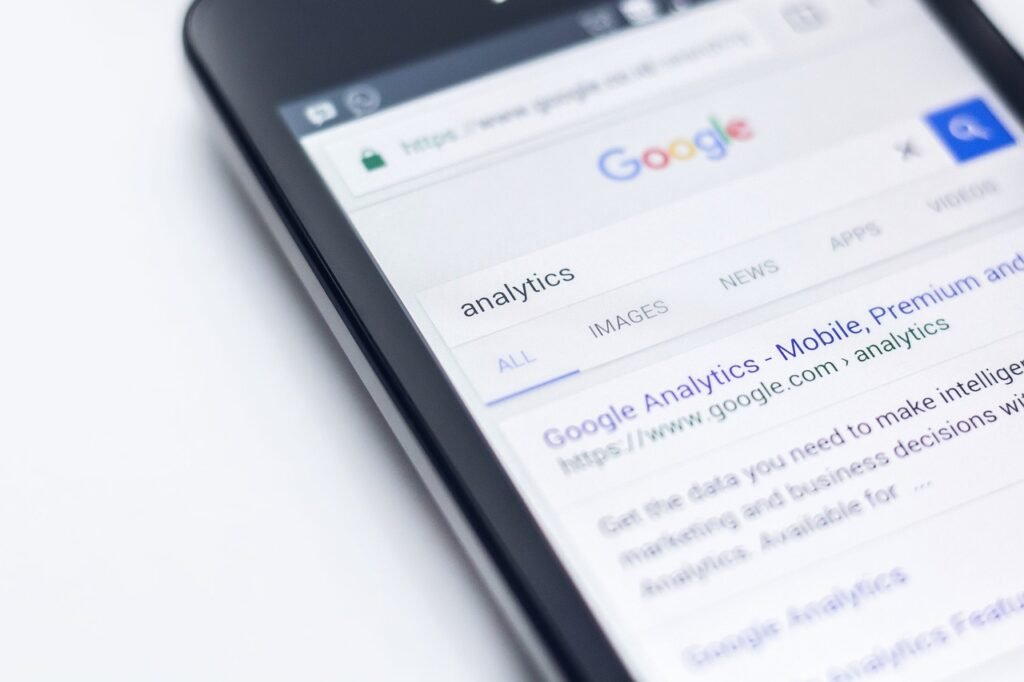In the dazzling world of the entertainment industry, influencer marketing has emerged as a powerhouse strategy, eclipsing traditional forms of advertising with its authentic, direct-to-audience approach. In a realm where attention is the currency, and content is king, leveraging the influence of celebrities and artists isn’t just beneficial; it’s essential. This article delves into the nuts and bolts of influencer marketing specifically tailored for the entertainment sector, exploring strategies for collaborating with celebrities and artists, understanding the unique nuances of this domain, and maximizing the impact of these partnerships.
Understanding the Entertainment Industry’s Landscape
The Power of Influence in Entertainment
The entertainment industry thrives on influence. Whether it’s a blockbuster movie, a chart-topping album, or a viral dance challenge, the success often hinges on how deeply an artist or celebrity can resonate with their audience. Influencer marketing, in this context, is not merely about promoting a product or a service; it’s about creating a cultural phenomenon.
Trends Shaping Influencer Collaborations
Recent years have seen a shift in how content is consumed and shared. Streaming platforms, social media channels, and even gaming environments have become critical touchpoints for reaching audiences. The rise of short-form video content on platforms like TikTok and Instagram Reels, for example, has opened new avenues for celebrity endorsements and creative collaborations.
Partnering with Celebrities and Artists
Choosing the Right Influencer
Not all celebrities or artists are the right fit for every campaign. The key lies in aligning a brand’s values and objectives with the influencer’s public persona and audience demographic. A well-chosen influencer can lend credibility, stir excitement, and create a deeper emotional connection with the target audience.
Structuring Collaborations
Once the right influencer is identified, structuring the collaboration becomes crucial. This could range from simple social media shoutouts to more intricate content like behind-the-scenes looks, exclusive interviews, or even co-created content that blurs the lines between entertainment and advertising.
Leveraging Social Media Platforms
Instagram and TikTok: Visual and Engaging
Instagram and TikTok offer vast playgrounds for visual storytelling and engaging content. Celebrities and artists can use these platforms to give a personal touch to their endorsements, from live Q&A sessions to interactive challenges, making the promotion more authentic and relatable.
YouTube: Deep-Dive Content
For more in-depth storytelling, YouTube stands out. Artists and celebrities can create longer-format content that delves into the details of their collaborations, providing a more comprehensive view and potentially a stronger emotional engagement with the audience.
Crafting Engaging Content for Different Platforms
Tailoring Content to Platform Strengths
The key to effective influencer marketing in the entertainment industry is not just about who is delivering the message, but how and where it is delivered. Each social media platform has unique features and user expectations. Content that resonates on TikTok, with its quick, visually-driven, and often humorous style, might not hold the same appeal on YouTube, which is better suited for detailed storytelling, reviews, or documentary-style presentations.
Incorporating Authentic Storytelling
The authenticity of content plays a pivotal role in its reception. Influencers, especially in the entertainment sector, should aim to craft stories or messages that feel genuine and personal. This might involve sharing behind-the-scenes glimpses, personal anecdotes, or candid opinions. Such authenticity not only enhances viewer engagement but also builds trust in the influencer’s endorsements.
Navigating Challenges in Celebrity Collaborations
Balancing Creativity and Commercial Goals
One of the primary challenges in influencer marketing within the entertainment industry is striking the right balance between creative expression and the commercial objectives of the campaign. While influencers are generally given creative freedom to ensure content authenticity, marketers must ensure that the brand’s message remains clear and impactful.
Dealing with Public Perception and Controversies
Celebrities and artists, being public figures, are often under scrutiny, and their actions can significantly impact the public’s perception of the brands they endorse. Managing these aspects requires careful planning, including provisions in the collaboration agreements for managing potential controversies or negative publicity.
Maximizing Impact Through Multi-Platform Strategies
Coordinating Across Channels
To amplify the reach and impact of influencer marketing campaigns, coordinating content across multiple platforms is crucial. For instance, a teaser on Instagram can lead to a full video on YouTube, which is then discussed on a podcast. This cross-channel promotion ensures a wider reach and taps into different audience segments.
Tracking and Leveraging Analytics
Understanding the performance of influencer campaigns on various platforms is essential. Analytics can provide insights into engagement rates, audience demographics, and content reception. These metrics help in fine-tuning strategies and making informed decisions for future collaborations.
Future Trends in Influencer Marketing for Entertainment
The Rise of Virtual Influencers and Deepfakes
An emerging trend in the digital age is the use of virtual influencers and deepfake technology. These digital creations can offer new dimensions to influencer marketing, with controlled messaging and the ability to create entirely unique content experiences. However, they also raise ethical and transparency concerns.
Embracing AR and VR Technologies
Augmented Reality (AR) and Virtual Reality (VR) technologies are beginning to play a role in influencer marketing, offering immersive and interactive content experiences. These technologies can be particularly effective in the entertainment industry, allowing audiences to engage with content and influencers in innovative ways.
Leveraging Niche Influencers for Targeted Impact
Identifying the Right Niche Influencers
In the vast expanse of the entertainment industry, identifying influencers who cater to specific niches can be a game-changer. For instance, a music influencer specializing in indie artists can be more effective for promoting niche genres than a broadly popular celebrity. These niche influencers often boast highly engaged communities, offering targeted and authentic promotion.
The Power of Micro-Influencers
Micro-influencers in the entertainment sector, though they might have smaller followings, often yield higher engagement rates. Their recommendations can appear more genuine, relatable, and trustworthy to their audiences. Collaborating with such influencers can drive passionate, focused conversations around a brand or product.
Integrating Influencer Insights in Marketing Strategy
Gleaning Audience Insights from Influencers
Influencers, being closely knit with their followers, can offer valuable insights into audience preferences, trends, and behaviors. Entertainment marketers can leverage these insights for more targeted campaigns, content creation, and even product development.
Influencers as Brand Consultants
Some influencers extend beyond traditional endorsements to act as consultants, bringing in their unique perspective and expertise to shape marketing strategies, content creation, and audience engagement tactics.
Measuring Success in Influencer Collaborations
Key Performance Indicators (KPIs) for Entertainment Marketing
Determining the success of influencer marketing campaigns in the entertainment industry involves more than just tracking likes and shares. Engagement rates, audience growth, sentiment analysis, and conversion rates are crucial KPIs. Additionally, measuring the impact on brand reputation and long-term audience loyalty provides a more comprehensive success metric.
Using Advanced Analytics Tools
Advanced analytics tools that can track and interpret complex data sets are vital. These tools not only measure current campaign success but can also predict future trends, enabling marketers to stay ahead of the curve.
Ethics and Transparency in Influencer Collaborations
Maintaining Authenticity and Trust
With audiences increasingly wary of overt advertising, maintaining authenticity in influencer marketing is paramount. Clear disclosures of sponsored content and honest reviews preserve the trust between the influencer and their audience, and consequently, the audience’s trust in the brand.
Navigating Endorsement Guidelines
Understanding and adhering to legal and ethical guidelines in influencer endorsements are crucial. This includes clear communication regarding sponsored content and adherence to platforms’ specific regulations.
Innovative Formats in Entertainment Influencer Marketing
Exploring New Content Formats
Podcasts, live-streaming, interactive posts, and virtual events are some of the innovative content formats gaining traction in the entertainment industry. These formats offer fresh ways to engage audiences, provide value, and stand out in a crowded digital landscape.
Storytelling Through Immersive Experiences
Influencer marketing in the entertainment sector is uniquely positioned to leverage storytelling through immersive experiences. This could involve interactive story-driven content, virtual meet-and-greets, or augmented reality experiences that deepen the audience’s connection with the brand or product.
Future Directions: Predictions and Preparations
Adapting to Changing Audience Behaviors
Keeping a pulse on evolving audience behaviors and preferences is crucial. This might involve shifting focus to emerging platforms, adapting to new content consumption patterns (like short-form videos or interactive content), or embracing new technologies.
Staying Ahead of Technological Advancements
Finally, the intersection of technology and influencer marketing is an area of continual evolution. From AI-driven content personalization to VR and AR experiences, staying abreast of technological advancements will equip marketers to create innovative, engaging, and effective influencer campaigns.

Related: Check out our free SEO suite

Embracing Diversity in Influencer Marketing
Promoting Inclusivity through Influencer Selection
Diversity in influencer marketing not only enhances the brand’s reach across different demographics but also demonstrates a commitment to inclusivity. By collaborating with influencers from varied backgrounds, ethnicities, and communities, entertainment brands can connect with broader audiences and foster a positive brand image.
Leveraging Global Influencer Appeal
The global appeal of influencers, especially in the entertainment sector, can significantly amplify a brand’s message. Engaging with influencers who have a worldwide following or those who can resonate with specific cultural groups can be a strategic move for global campaigns.
Sustainability and Social Responsibility in Influencer Marketing
Aligning with Influencers on Social Causes
Partnering with influencers who are vocal about social and environmental issues can boost a brand’s image as socially responsible. These collaborations can range from promoting eco-friendly practices to supporting charitable causes, thus adding a layer of purpose to the marketing efforts.
Long-Term Impact of Responsible Marketing
Sustainable and responsible marketing practices not only contribute to a better world but also build long-term trust and loyalty among audiences. Influencers advocating for these values can significantly enhance brand reputation and customer relations.
Leveraging Data-Driven Insights for Customized Campaigns
Utilizing Analytics for Tailored Strategies
With heaps of data available, utilizing analytics to decipher audience preferences and behavior patterns becomes crucial. Customized campaigns, designed based on these insights, can significantly increase engagement and conversion rates.
Predictive Modeling for Future Campaigns
Using predictive analytics and modeling techniques, marketers can forecast trends, influencer performance, and audience responses, which can inform more effective future campaign strategies.
Maximizing ROI in Influencer Collaborations
Cost-Effectiveness and Efficiency
Evaluating the cost-effectiveness of influencer partnerships is vital to ensure a good return on investment. This involves not just analyzing the direct costs but also examining the broader impact on brand value and customer acquisition.
Strategies for Maximizing ROI
Strategies such as performance-based agreements, where influencers are compensated based on the success of their campaigns (like sales or lead generation), can be effective. Additionally, repurposing influencer-generated content across various marketing channels can enhance ROI.
The Role of Storytelling in Influencer Marketing
Crafting Engaging Narratives
Storytelling is at the heart of effective influencer marketing. Influencers who can tell compelling stories that align with the brand’s message can significantly boost audience engagement and emotional connection.
Using Stories to Enhance Brand Identity
Stories, whether they are about the brand, the influencer’s experiences, or customer testimonials, help in humanizing the brand and making it more relatable to the audience.
Navigating the Challenges of Influencer Marketing
Managing Influencer Relations
Building and maintaining strong relationships with influencers is key to successful collaborations. This includes clear communication, respecting creative freedom, and ensuring mutual benefits.
Overcoming Market Saturation
In a crowded market, differentiating the brand’s influencer marketing strategy from competitors is challenging. Original content, unique influencer partnerships, and innovative campaign ideas can help in standing out.
Conclusion
Influencer marketing in the entertainment industry, a realm continually shaped by creativity, technological advancement, and cultural shifts, presents exciting opportunities and challenges. From embracing diversity and social responsibility to leveraging data-driven strategies and storytelling, the potential to create impactful, authentic connections between brands and audiences is immense. As the landscape evolves, so must the strategies, always with an eye towards authenticity, engagement, and innovation.
READ NEXT:
- The Role of Podcasts in Influencer Marketing: Engaging Listeners with Authentic Voices
- The Importance of Ethical Practices in Influencer Marketing: Building Trust and Authenticity
- Influencer Marketing for the Fitness Industry: Collaborating with Fitness Trainers and Enthusiasts
- The Role of Community Building in Enhancing Affiliate Marketing Efforts
- How to Dominate Google Rankings for Every Type of Loan Service






















Comments are closed.